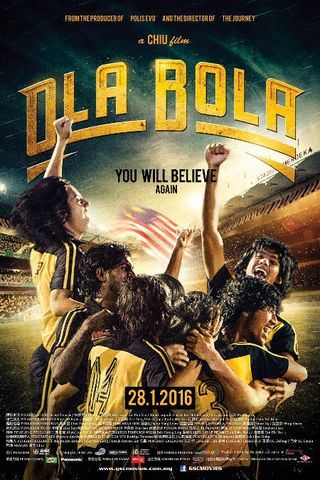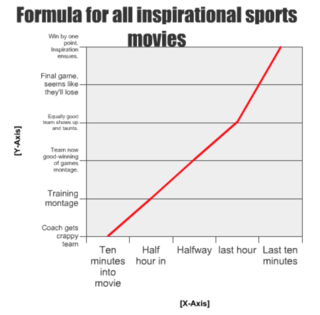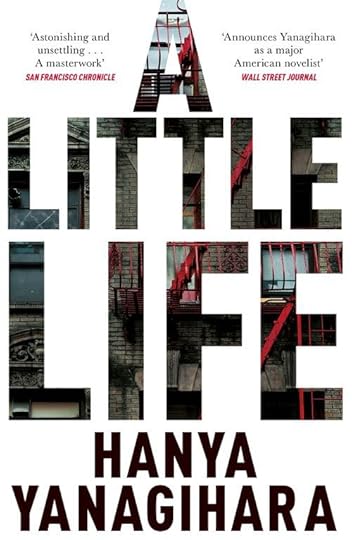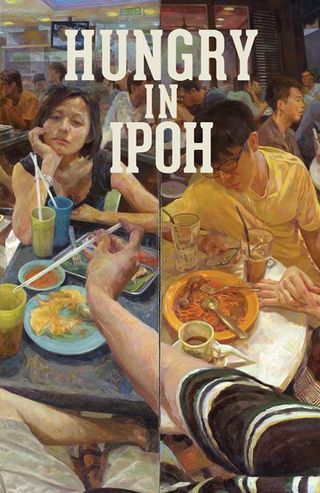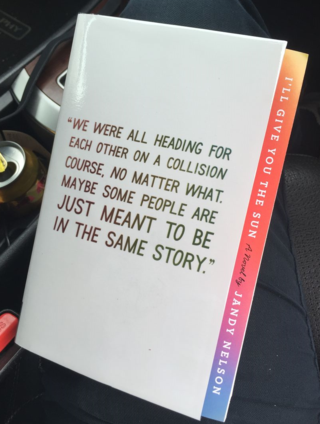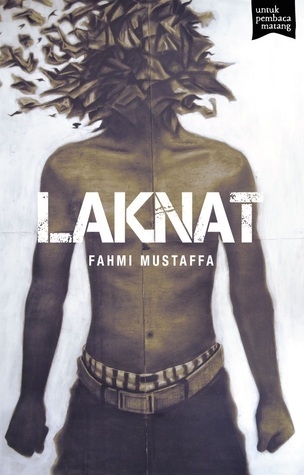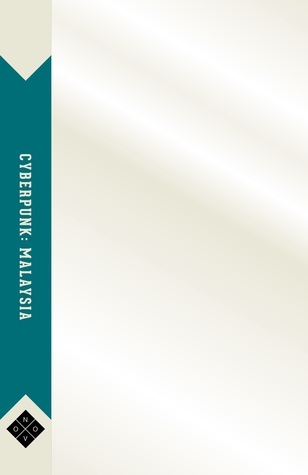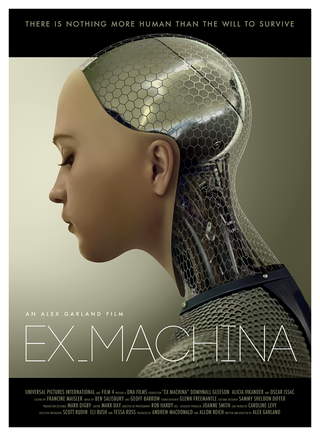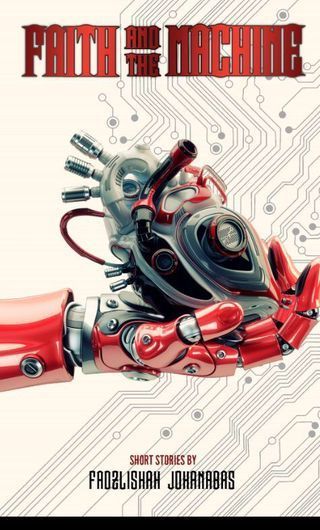Fadzlishah Johanabas's Blog, page 2
June 12, 2016
The Power of the Media
In the wake of singer Christina Grimmie's tragic and senseless murder, I came across a random tweet. Paraphrasing it, it goes like this:
Muslim killer - 7 days before name is released. Black killer - 3 days before name is released. White killer - name released immediately.
The source of the tweet is, of course, a white guy. Most probably complaining to the void about how unfair it is for white folks, how they are singled out when other peoples' identities are protected for as long as possible, when in reality, it's the other way around. And after half a day has gone by, I still find the tweet disturbing.
First off, it's scary how freedom to own and carry guns in America has led to all these senseless killings. The victims are mostly children and young adults. So much potential, lost. So much life, taken too early.
Here's the thing: by naming the perpetrator immediately, by giving him a face, the media absolves everyone else from his crime. I'm not surprised if within these few days, terms like 'mentally unstable' and 'lone wolf' and 'disturbed individual' will come into play. All of these are excuses to mask the terror that has taken place.
The reason why it takes much longer to name a Muslim murderer is because the longer the term 'Muslim' is broadcasted, the bigger the suspicion toward Muslims in general. The bigger the suspicion, the easier it is to rally people against a common enemy. Not an individual who may or may not be mentally unstable and disturbed, but entire communities of the particular Faith.
Rule by fear. That's powerful stuff right there.
Sheep are terrified of shepherd dogs. They move as a unit wherever the dogs round them up. We are such lambs. Baa.
How are these acts of unforgivable violence by white people not an act of terror? Why is a rapist protected behind the term college athlete, and his act of violence called sexual assault instead of rape? Why are mass murderers protected behind the terms 'lone wolf' and 'mentally disturbed'?
When did the world decide that the whites are a supreme race?
The sad thing is, even in Malaysia, we have the same problem. Malay supremacy. The privileged race. A delusion, no more than that, but still. Who decides which race is superior over others?
The media.
With wordplays, they package stories for the masses. With well-worded headlines, they control how the public thinks. Those who control the media shape how the world thinks.
It's disturbing how powerful words are.
February 6, 2016
Movie review: Ola Bola (aka the most depressing movie about Malaysia)
Let me start with a disclaimer: I���m not a football fan. You Americans call it soccer (because apparently football is what you call a game where you clasp the ball under your armpit most of the time, but I digress). I wanted to watch Ola Bola because of the hype. Because it���s Malaysian, apparently.
Not made in Malaysia. Malaysian.
Before we get into a heated debate, let���s be clear that Ola Bola is a sports movie, pure and simple. As such, it follows the sports genre formula to the letter:
Underdog ��� new coach inherits a crappy team ��� star player rebels against the new coach ��� training montage ��� team starts winning ��� good team comes to taunt ��� final game, losing the first half ��� inspirational half-time pep talk ��� team wins by a point ��� more inspiration.
It���s not even a spoiler, okay. It���s an actual used-and-abused movie trope. Don���t believe me? Click here and here. Only, there isn���t any death scene. Hmm.
image: screen-captured from http://cheezburger.com/2625938688
The premise is this: it is 1980 (thank God I���m not of that fashion era!), and the Malaysian football team is gearing up for the Moscow Olympic qualification. They lost the qualifying match to Korea back in 1976, so they are determined to qualify this time. The captain, Tauke, needs that qualification, and is pushing the team. They get a new coach from England, and���read the trope above.
There are three significant things that make Ola Bola different, though. One: it���s a Malaysian narrative. Two: the main characters have lives ��� even jobs ��� that have nothing to do with football. Three (and the most important of all): the movie is a subtle and subliminal clarion call for all Malaysians to wake up from their comfort zone and unite.
People are enthusing that Ola Bola is Malaysian. That���s what Malaysians say when someone or something great is not Malay. You���re a great sportsperson/author/actor/designer but not Malay? We are proud of you, you great Malaysian you. Other than that, we keep hearing declarations like ���pergi balik negara asal kau la!��� (go back to your country of origin).
Malaysian birth certificate, Malaysian identification card. The negara asal is Malaysia. Duh.
When you slap the term ���Malaysian movie��� on Ola Bola, I find it distasteful, and doing the director, Chiu Keng Guan, a disservice. I think it���s a Chinese movie, what with the first 15 minutes being in Chinese and all (I think Cantonese and Mandarin dialects are used, but I may be wrong. Maybe it���s just Mandarin.) and with the credits written in both Chinese and Malay. But the characters also converse in English, Malay and Tamil. They don���t converse one another in Malay or English for the benefit of the audience; they speak their natural languages in their natural environments. There���s even my favorite ���Why ah?��� line. In other words, the narrative is inherently Malaysian, with all its nuances and flavors. For foreigners who want a taste of near-modern Malaysia, this movie is a must-watch. I refuse to slap the term ���Malaysian movie��� on Ola Bola, though.
The main characters (Captain Tauke, goalie Muthu and aspiring sports commentator Rahman) have their own lives and families, as well as their own sets of worries and hardships. Taukeh works non-stop (rubber tapping, office clerking and then helps his girlfriend at the funfair at night ON TOP of football practices and games ��� #lebihdari2kerja) just to make ends meet, and his younger sister disapproves of his chasing his football dream ��� or so it seems. Muthu, the eldest son of the family, is getting flak from his dad for not being there to help deliver coconuts to shops. Rahman���well he always gets his twin daughters mixed up.
Anyway.
There are no Datuks and Tan Sris and overbearing (and overdressed) Datins in this movie. These three focus characters have their own versions of kampung houses and families. We the audience get a taste of these culturally diverse lives that are united by a common thread: the bond of family. Also, nasi lemak. I kid you not. Paraphrasing Tauke in his conversation with Rahman, ���kulit kita lain warna, tapi kita sama-sama makan nasi lemak.��� Our skin colors may be different, but we all eat nasi lemak. Something like that. What���s so beautiful about this movie is that these culturally different lives are showcased in a way that is not forced onto the audience as with the ���Ahmad, Ah Chong and Raju��� problem that is prevalent in our patriotic/inspirational movies and advertisements where racial unity is shown in a stereotypical manner (read: pretentious).
Speaking of, talk about being subliminal. Talk about inception. I���m not sure if most other audience members realize this, but the part where the coach talks about the Malaysian team being too deep in its comfort zone, and a change will do it a lot of good, as well as the older version of Tauke���s speech at the end���wow. Good speeches. Deep. Like I said, a clarion call for all Malaysians to wake up, but done in a subtle and tasteful way. Subliminal.
The actors are mostly new and green, so the underacting that at times can be lackluster is expected. I also think the three Caucasian teams they went up against used the same players. Comic relief that borders on slapstick is also rampant, but hey, it���s entertaining as hell. We were all laughing with abandon during the funny bits. And the trope. Come on.
These imperfections hardly matter, though. During the ending speech, the random lady beside me sniffled. Heck, even I felt a little patriotic watching Ola Bola. Because it is a beautiful movie in spite of its imperfections. The cinematography���masya Allah, it���s superb. There���s this (totally unnecessary) scene where the team boards a Nuri helicopter and we get a montage of random but breathtaking aerial views of Malaysian mountains, islands, paddy fields, swamps and forests, and I whispered to Sab, ���this isn���t Malaysia. It���s so beautiful! But wait. That���s totally Sabah. Can the helicopter fly that far?��� The match scenes are also realistic ��� as realistic as a non-fan can expect, at any rate. The spirit of the bond created when cheering for your fellow countrymen is palpable. It reaches out throughout the cinema hall.
So why the dramatic title? I felt depressed watching the movie because it���s a fictional Malaysia. It���s Malaysia as how it should be, and not how it is. There is no mention of Melayu or Cina or India at all. When a team member is in trouble, the other helps out. ���I cover you,��� as Muthu tells Ali.
There is no. Mention. Of. Race.
How beautiful ��� and sadly fictional is that?
Malaysians (especially the Malays) are so wrapped up in paranoia and distrust that even a good Samaritan helping another person gets highlighted as ���Malay guy helps a Chinese aunty��� or ���Malay elderly refuses the help of an Indian doctor���. It���s depressing that instead of fellow Malaysians, we are forced into clusters and labels of our own doing. Our children are taught to distrust other races. We are conditioned to look at immigrants from countries like Indonesia, Bangladesh, Nepal and Myanmar as lesser beings. Non-Malays are always reminded of the pre-Merdeka past, and to be grateful for the generosity of Malays.
Inilah barisan kita
Yang ikhlas berjuang
Siap sedia berkorban
Untuk ibu pertiwi
I won���t even bother translating these lyrics because Malaysians understand the words, and the meaning behind the words. Only that we have chosen to let the lyrics be just meaningless words.
Watching this movie depresses me because it portrays a beautiful Malaysia that we are drifting farther and farther from every day. It also gives me hope because while it is not a Malaysian movie, the movie is for Malaysia. It is also the best movie Malaysia has produced to date.
���Kita menang sama-sama, kita kalah pun sama-sama.���
We win as one, we lose as one.
May the beautiful words be more than just fiction, insya-Allah.
I leave you with the beautiful song "Arena Gemilang" by Zee Avi.
#getwellMalaysia
January 9, 2016
Book Review: A Little Life, by Hanya Yanagihara
My friend Abu Sufian recommended me A Little Life by Hanya Yanagihara for the feels. He got me at ���feels���.
When I hefted the book ��� yes, hefted ��� I was daunted by the size of the tome. Also, there was the issue of it being over 700 pages long. I generally stay away from adult literary fiction and concentrate on YA fiction instead, but, you know, I was craving for the feels.
A Little Life started off slow, and the book and I had plenty of false starts. I estimated that it would take a month (or more) to finish reading it.
Then something changed.
The people in the book came to life. Jude and Willem and Malcolm and JB and the people around them came to life. Jude and Willem became so compelling that the book became unputdownable. It���s been almost a month since I finished reading A Little Life (took me 1 week instead of 4), but I still think of them, Jude and Willem. Most of all, Jude.
Miss Yanagihara has a way with words. None of them, not one in the over 700 pages of words, has been squandered. The emotional punches kept getting harder and harder, I was battered by the time I reached the last sentence. The four main characters each have their personalities, strengths and flaws. And I���ll be upfront that I don���t like JB all that much, but I love the paintings he makes of Jude and Willem.
Yes, I know there are no actual paintings. The author���s THAT good.
I love how deliberate she is with her points of views. Even though she uses third person perspective (except when Harold narrates, and that���s in first person), the characteristics of that particular perspective shine through. When the story is told in Willem���s, Malcolm���s and JB���s perspectives, their personalities, their individualities, are apparent. When it is told in Jude���s perspective, though, it���s like he tries to make his own existence as small as possible. He doesn���t even use his name, and we only know it���s his perspective because other characters use his name in dialogs. Even then, it���s kept to a bare minimum.
A Little Life is a thoroughly beautiful and tragic story. However.
I have qualms. Yes, it is obvious that Jude���s life is a series of tragedy, and even though I keep yearning to hug him and tell him everything will be all right (he���ll just cower away and not let me touch him, but still), the tragedies keep piling up that by �� of the book, it felt like these tragedies are put there more to affect the readers than to make Jude who he is. It becomes melodramatic the deeper the story gets; I won���t hesitate to say that my suspension of disbelief wavered more than once.
The other thing is that even though this book spans over thirty years, the characters don���t really grow older. Age becomes nothing but numbers. Age advances the story, yes, but the people in the book stay essentially the same. The only thing that progresses is Jude���s spine problem and its complications. Yes, Andy has children and they grow up, but only in passing. Physical changes, maturity, death���these are not present. It���s as if all the people around Jude hang on and resist change just to provide a constant for him. But resist change for over 30 years?
Other than the issues mentioned above, I���ll say, ���Wow. This book is bloody brilliant. If only I have half Hanya Yanagihara���s skills.���
I give this book 4 out of 5 stars. I highly recommend it for the feels.
And Jude, wherever you are, I���m sorry for everything that has happened to you. May fate treat you much kinder in your next life.
November 7, 2015
Book Review: Hungry in Ipoh, edited by Hadi M Nor
One word: WOW (caps lock intended for added emphasis). As with all storybooks, I opened Hungry in Ipoh hoping to fall in love, and I have fallen head over heels with this book. From the cover to the contents. Just. Wow.
Hadi M Nor, editor of this book, opens the volume in a simple, unpretentious manner. I believe that he did this because he knew he didn���t need to oversell the book, that it would speak for itself.
And so it did.
For those of you who haven���t bought���and read���this book, I urge you to do so. The editor has curated a mighty fine anthology. A mighty fine one.
���No Kick��� by Terence Toh
A strong opener, with a very Malaysian flavor without alienating Anglophone readers. A fun read, except at the end where it becomes a dissertation on biology, which takes away the reading experience.
���Ipoh GirlsTM��� by Cassandra Khaw
Well written and sophisticated, but monotonous.
���Mastura���s Air Lengkong Adventure��� by Ted Mahsun
Wow. Not a hint of the author���s signature whimsical, satirical voice. For a story written in first person, this is a good thing. An engaging read with a plausible twist ending. It���s a shame about the persistent tense confusion, though. At first I thought it was a typo, but this wasn���t the case. It���s like the author originally wrote the story in past tense, then decided to change it to present tense, but forgot to address a significant number of the changes.
���Beloved��� by Atikah Abdul Wahid
This story puts a smile on my face. It is sweet, just like the desserts it talks about. As someone who bakes pavlova, I can totally visualize the opening scene. Excellent character arc, cleanly written at a leisurely pace, this is one pretty story. I can���t wait to read more from the author.
���Joget Girl��� by Marc de Faoite
I love this piece. It reminds me of P Ramlee-era movies and has this jazzy New Orleans vibe to it. It doesn���t describe Ipoh as a setting, but the languid pacing, the entire atmosphere of the story���they are unmistakably Ipoh���for me, at least. The author has delivered yet another solid story, but it also feels different. More mature. Classier.
���Night in a Garden in Ipoh��� by William Tham Wai Liang
This story. Wow. This story is steeped in Ipoh like a strong cup of tea in a porcelain cup. The descriptions of the settings, the descriptions of the people, the breath of the story itself, they transport me back to the city. Wow. Take this description for instance: ������old men in singlets and Pagoda shorts who stirred their nostalgic coffee������ Such a beautiful, evocative description. I especially love ���nostalgic coffee���. A beautiful read. Reminds me of Eeleen Lee���s style of writing.
���The Art of Food Plating��� by Eileen Lian
Oh, man. I feel sorry for this story for coming after "Night in a Garden in Ipoh". It feels all over the place, trying too hard, cramming my head like a cheerleader experimenting with mood-altering substances.
���The Ipoh Food Court��� by Wong Hon Kit
I feel sorry for the narrator, who is haunted by the ghost of his perfectionist mother (not literally). Otherwise a forgettable story.
���The Ultimate Indulgence��� by Tina Issacs
Another speculative fiction in this volume after ���Ipoh GirlsTM���, this one an urban fantasy. Did he gain invincibility or invisibility? If he were invincible, why did he end up hiding in caves? He was talking about invisibility up to that point. The writing is solid and engaging, and the narrative voice is quirky, but the story feels too���generic. Here we have the Raja Bersiong, but the narrator could have been any (non-glittering) vampire. I don���t know. I just feel that the unique viewpoint of our peninsula���s vampire sultan could have been explored (and exploited) more. A bit frustrating, this.
���More than Enough��� by Leroy Luar
Oh my. I am officially Leroy Luar���s fan. He has done it again. Another brilliant masterpiece of a short story. I lived the experience of an old woman coping with the death of her husband. The lyrical prose, the sense of love that transcends death, the beauty of companionship and family���oh my. More. I hunger for more stories from this author.
���An Epi-Curious Affair��� by Julya Oui
To appreciate this story, do not read it immediately after finishing other stories in this volume. It has to be read in its own sitting. At first it felt overwhelming, but then I was able to see it cinematically: the (loud) family sitting at a round dinner table, and the camera panned in a circle as they talked and interrupted one another and laughed. I love the family dynamics and how this story actually centers around food. One of the rare stories I���ve come across where the heavy Manglish feels natural, and not used for the ���Malaysian��� effect. This is definitely a good read.
���Mother���s Manifesto��� by Angeline Woon
In this story, the house���the mansion���itself is a character. Very well done, at that. The story shows the antagonistic relationship between a new mother and her own mother, and her silent resentment toward her mother, toward her son. This one is a powerful tale.
���Finding the Way Home��� by Benjamin Tham
A story set during Hungry Ghost! Finally! I had been waiting for such a story the entire volume. It���s a pretty little story, with the ending obvious several paragraphs into the story.
���Funny Mountain��� by Ivy Ngeow
It was bound to happen. I was hoping against hope that in this volume there wouldn���t be a typical ���Malaysian story��� that meanders like a taxi taking a foreign tourist from KLIA to the hotel, with its mini-guided tour, which does nothing but take that person from point A to point B. Except there���s no point. No change. No arc. At all. And then I read this. At least this story offers a tour of Ipoh and its foods.
���Pau Babi��� by Tilon Sagulu
Oh man, I feel for Mei-Ling. The story is about a mualaf (someone who reverts to Islam) who craves for char siu bao (steamed pork buns). But it goes much deeper than that. Denying herself that simple childhood pleasure is denying her very identity, a choice she made out of love. When love suppresses one���s identity, it smothers. A solid story to close this volume.
Hungry in Ipoh should be a mandatory read in secondary schools. It���s that good. Of course, there is this issue about not enough racial distribution in the volume (read: not diversity. Racial distribution), and that one transgender character. Definitely not kosher for our Ministry of Education. No sir.
What a loss. Bummer.
So parents should make this book a mandatory read for their secondary school children. Perak/Ipoh tourism should have this book on the counters for tourists to buy. Yes. It���s that good.
Come to think of it, there���s not a single story that���s about political/social commentary, and this is rare for a Malaysian anthology. I applaud Hadi M Nor and Fixi Novo for curating Hungry in Ipoh. Not only has he showcased an entire book of amazing short stories, he has perfectly captured the laid-back atmosphere of Ipoh in the stories he picked. Such a wonderful job.
I give this book a 4.5 stars, rounded up to 5.
What���s more important is that this book shows how Malaysian-English literature is blossoming.
And I���m loving its sweet scent.
November 3, 2015
Book Review: I'll Give You the Sun by Jandy Nelson
I wasn't supposed to buy books anymore. I wasn't supposed to be browsing for new ones. Then serendipity happened, just when I needed inspiration the most. Just look at the cover. The words. The instant feels.
I'll Give You the Sun by Jandy Nelson tells the story of a pair of highly artistic twins, Jude and Noah, and how they cope with the loss of their mother. The narration alternates between 13-year-old Noah and 16-year-old Jude. When Noah begins his story, they are NoahandJude, but when Jude starts hers, they are Jude without Noah/Noah without Jude. As their stories unravel, they have to find their way back to become Noah and Jude.
Noah is a painter, and when he doesn't paint or sketch, he paints in his head, and he calls his gallery the Invisible Museum. The way he sees things, the way both reality and imagination happen all at once, is both jarring and beautiful at the same time.
I start to run, start to turn into air, the blue careening off the sky, careening after me, as I sink into green, shades and shades of it, blending and spinning into yellow, freaking yellow, then head-on colliding into the punk-hair purple of lupine: everywhere.
The words. The imagery. The feels. Also:
Because I can see people's souls sometimes when I draw them, I know the following: Mom has a massive sunflower for a soul so big there's hardly any room in her for organs. Jude and me have one soul between us that we have to share: a tree with its leaves on fire. And Dad has a plate of maggots for his.
Noah breaks his narration to name a painting in his Invisible Museum to describe what's happening to him and around him. For instance,
(SELF-PORTRAIT: The Boy Hiding Inside the Boy Hiding Inside the Boy)
Jude, on the other hand, is boycotting boys and has withdrawn into herself, and has conversations with the ghost of her grandmother. The ghost of her mother is angry with her for reasons revealed later in the book. Jude also carries around her grandmother's bible of superstitions and wisdom, and breaks her narration to mention passages from that bible.
Carrying a burnt candle stub will extinguish feelings of love
should they arise
(Front left pocket.)
Soak a mirror in vinegar to deflect unwanted attention
(Back pocket.)
To change the leanings of the heart, wear a wasp nest on the head
(Not this desperate. Yet.)
Jude is also a sculptor, but where during Noah's narration she hides her talent, during her narration, she holds herself back out of guilt. That same guilt is the force driving her to sculpt in stone. To seek forgiveness.
Jude and Noah are orbited by secondary characters whose fates are intertwined with them, including Jude's love interest Oscar and Noah's love interest Brian. Even the tormented sculptor who becomes Jude's mentor. While Jude's story revolves around her courtship with Oscar--hence making me favor Noah's story line--it is obvious that their love story is secondary; the core is still NoahandJude. People who gravitate toward romantic relationships may (or may not) be disappointed because the romantic relationships in this book are not as developed as the push and pull between the twins.
I'll Give You the Sun is all about the twins.
Savvy?
That said, I am worried about the contents of this book. Sex at the age of 13, a teenager who has a history of alcohol and drug abuse, and drunken parties at 16. This is a highly acclaimed novel, circulated and beloved by teenagers. As a pseudo-parent, this worries me. This worries me a lot.
Oh yeah. By the way. Malaysia gets mentioned a couple of times (Malaysian ants--I don't even know what those are). It's cool to have your country mentioned.
This book offers beautiful, evocative prose that sings to the visual artist in me. It is inspirational, almost at the level of Aristotle and Dante Discover the Secrets of the Universe.
I would have loved it more if Noah gets to tell his own ending, but seeing that his narration occurs at age 13 and the story concludes at age 16, I can understand the limitation. I love it when a novel ends tidily, but this one is a bit too tidy.
Overall, the prose is inspirational, and the story is beautiful. A highly recommended read. I give it a 7/10.
October 14, 2015
Book Review: Laknat by Fahmi Mustaffa
Laknat is a debut novel by Fahmi Mustaffa, published by Fixi.
Laknat is also the first Malay novel that I finished reading. I think.
There���s something about the book that���s unputdownable; this is coming from someone who has a difficult time reading Malay fiction. There���s a certain poetry and lyricism in the author���s prose that I fell in love with the storytelling despite the flaws in the story itself. There���s a certain beauty in the theological and philosophical discourse within this book that I closed one eye to the fact that they were paragraphs upon paragraphs of expositions/info-dumps.
Throughout the novel, the author consistently shows a flair with words that the lyricism felt beautiful and natural. For instance, this sentence: ���Bila dikeji oleh orang agama sendiri, Shelly jadi malu dan benci.���
However, there are times when the rhymes felt forced that I was left thinking maybe the poetry in the prose was premeditated, after all. For instance: ���Shelly sayangnya ditemui mati dilanggar lari oleh lori tidak jauh dari madrasah itu sendiri, mengikut saksi.���
There were passages from the Quran aplenty; sometimes it felt like I was reading a sermon or a theological lecture instead of a story. But there were also passages from the Vedas and songs in German and scientific as well as philosophical arguments that strongly suggested that the author has put in extensive research in crafting this novel. Though at times these info-dumps felt heavy-handed (see my review on Dan Brown���s The Lost Symbol regarding expositions), they were mostly handled with such finesse that I kept turning the pages.
Right from the start you get to feel���and understand���Amar���s contempt toward the Almighty, which is equally opposed by Hakim���s love toward Him. While Amar blames the Almighty for not doing anything while his elder brother raped him on a nightly basis for six years, Hakim finds peace and grace despite his parents��� untimely demise and people���s prejudice against his unshakable faith. They somehow end up as great friends.
Then there are Professors Hawking and de Souza. One was a staunch atheist and dreams to become a god among humans, and the other is on a mission to find God and faith through every scripture that exists. Hawking���s story ends abruptly, with no revelation on his secret research except for a subtle hint from his granddaughter toward the end of the novel. de Souza���s story twists from one way to another, and then twists again.
I���ll be honest. This novel is a total mindfuck. From a sane and intellectual discourse on homosexuality and Islam, the novel careens into absolute chaos. Where Nazi Goreng jumped out of the author���s control, this beautiful chaos stayed its course in the deft hands of Fahmi Mustaffa.
Could the ending have been stronger? Absolutely. It felt rushed, with every shitty imaginable thing happening almost all at once. Things went overly melodramatic, even. There were also plenty of potential angles that could have been explored more. As far as psychological thrillers go, though, I will reiterate that this novel is a total mindfuck.
It is, to me, unputdownable.
I���m thinking about offering to translate this book into English so that the entire world can read it. People won���t necessarily enjoy reading it, especially the ending, but there is so much to love in the intellect and brilliance of the prose.
Also, reading this novel made me realize how sheltered and na��ve my life���and in extension, the stories that I write���is.
For making me think I may be missing out on a treasure trove of Malay literature by not reading Malay novels, and for being unputdownable despite its flaws, I rate Laknat 7/10.
September 27, 2015
On Malaysian Writers Indulging in Mediocrity
Next month, a local writers��� Facebook group, #MYWriters, which I am a part of, will be celebrating its first anniversary all month long, and in a big way. The masterminds behind this group, Tina Isaacs and Gina Yap, are also the moving force behind this celebration, which will take place at various venues in and around KL and Penang. There will be some get-together, book sales and signing, and meet-and-greet.
Of course, there���s a high chance said get-together, book sales and signing, and meet-and-greet will only happen among members of #MYWriters, and not actual ���fans���, because let���s face it. While events organized by publishers like Fixi and Alaf21 will definitely have actual fans attending their events, Malaysians in general do not read Malaysian fiction, especially English ones.
Fine. I���m generalizing here. Whether I���d like to admit it or not, I do have people who actually like and follow my literary work. I did have a fan/patient who asked for my autograph while I was attending our Neurosurgical clinic.
Yep. Separating both facets of my life went out the window that day.
Today, Daphne Lee published an article in Star2 addressing these series of #MYWriters events. Click here to read it yourself.
OK? Back with me?
Here���s the thing: I wholeheartedly agree with her. I have not heard about some of the names listed, and some of the writers either have only started publishing, or are riding on past publications with nothing new to share. Here���s a quotable quote from the article:
Unfortunately, there seems to be a tendency for Malaysian writers to be more attracted to the ���writer���s life��� than to actually writing. They want the ���fame��� and the ���glamour��� without the effort.
They are quick to consider themselves having ���arrived��� with the publication of a couple of short stories, or a volume of poetry. Getting published is the prize. Getting published means being interviewed by the media, being photographed (wefies, anyone?), and signing books.
So are we (I���m saying we because I���m scheduled to attend the events on Oct 18 & 31) being self-indulgent? Are we celebrating our mediocrity?
Perhaps.
Here���s my take on this. When I started publishing in 2009, I had first written for a local competition. I didn���t do it voluntarily. I blame Azita ���Tita��� Baizura for pushing me off the precipice, from which I am still plummeting. One of the judges said she didn���t even get to read my submitted pieces; they had been rejected by slush readers. One of the rejected stories���which, for the record, did not undergo further revisions other than shifting scene places���was picked up by a British publisher, and has been reprinted in my anthology, Faith and the Machine.
I know for a fact that my story doesn���t suck. The slush reader, a typical Malaysian reader (I think), was not ready to accept my story. Perhaps the reason for it was because I didn���t use Manglish. Perhaps it was because my story line wasn���t typically Malaysian, which has a meandering plot and a trick/hanging ending.
What I learned from the experience was that I wasn���t going to get any help or encouragement locally. So I sent my feelers out. I published my stories internationally, at first for free at venues like QLRS, then to places that offered token payment like Every Day Fiction and Expanded Horizons, and then to established ones like COSMOS and Interzone.
Throughout my journey, the one major force that has been propelling me lives half the world away. I still get agitated when I email Breanna Teintze new stuff, and whatever happens, she will always be my first reader. She also writes AMAZING Fantasy stories, which you can get via Amazon/Kindle. Then there are people in Malaysia whom I���ve picked up along the way (besides Tita): Rumaizah, Mei Sin, Adlina, Siaw Nee, Sabariah & Kak Maizura.
Notice that my beta readers are women. If you���ve read any of my works, you���d know that my specialty is in producing waterworks.
Anyway. My point is that when I started my career as a writer, I didn���t get any support from Malaysians in general. I didn���t want to self-publish because reasons. I also wanted validation that I didn���t suck as a writer. I still think I���m not good enough, and I���m still seeking validation.
Even now, my publisher is having trouble distributing my book. Because of the subject matter.
Go figure.
Recognition and local support do come, eventually. Several university students had interviewed me for their assignment. Dr. Anita Harris has invited me to share my experience in Science Fiction writing at CONfabular, a genre literary event hosted by UKM in October.
Perhaps, in the not so distant future, I will make actual money from writing. In the meantime, I am concentrating on what Daphne urges in her article: writing well and improving my craft.
That's my story. Times have changed. Platforms such as #MYWriters provide a venue for emerging Malaysian-English writers to gather enough courage to showcase their voices. In this Facebook group, I freely share my opinions and arguments; sometimes I go too far to send my point(s) across.
Like this post.
Some of the members approach me personally to seek advice, to ask for my opinion on their stories. And I do what I always do. I give unfiltered, honest criticism because that���s the only way for a writer to grow.
That���s how I see Daphne���s article. Some people may think she���s being negative, but for me, she���s offering unfiltered, honest criticism.
Are we indulging in mediocrity?
Of course we are. But at the same time, we are also celebrating new and emerging literary voices. Perhaps these events will be nothing more than like-minded people gathering to share their aspirations and fears.
Perhaps, just perhaps, in a few years from, one writer will share a blog post on how the yet-to-be-held events have played a pivotal role in launching his or her esteemed career.
Here���s to self-indulgence.
___________________________________________________________
The details of the #MYWriters events can be found here.
My publisher, Kushairi Zuradi, will hopefully be selling books from Simptomatik Press at some of the events (Fadli al-Akiti���s Gugurnya Azazil, Azida Ishak���s Resesif, Kushairi���s Biohazard & my Faith and the Machine. You can get the books online, or at Kedai Fixi and Silverfish Books. MPH now carries Simptomatik Press���s titles (other than mine).
Those who are interested in attending CONfabular 2015, check out the details below.
And seriously. Do buy and read Breanna���s Goodbye, Goddess.
June 19, 2015
Book Review: Cyberpunk: Malaysia
Like many other Malaysian Science Fiction fans, I was excited by the very thought of this anthology, which is the first--to my knowledge--Malaysian English Science Fiction anthology.
I love the cover: plain foil that doubles as a murky mirror. Perhaps it's a nod to Mirrorshades, a Cyberpunk anthology published in 1986. The digital edition covers are pretty, too.
Sadly, that's about the only positive thing I can say about this anthology, other than a few amazing stories that I'll mention in a bit. Most of the stories aren't even Science Fiction, much less Cyberpunk. They're merely General Fiction with robots and plasma guns thrown in so that they can pass off as SF. As a genre writer, this pisses me off. How can we expect Malaysian SF to be taken seriously?
Well, on with my review of each story in the anthology.
Underneath Her Tudung
At its essence, this is a story about a young woman who is accepting her new existence as a cyborg. However, the storytelling is an absolute mess. It���s a Manglish fest, but the mangled English felt���forced, as if used for its effect. The story meanders and doesn���t have any focus at all. I���m not sure if using this story as the opening piece is a good idea. It definitely sets the book as Malaysian, though, both for its terrible Manglish, and for its unfocused storytelling.
Codes
It���s a story about a girl using a fake identity to bypass the restrictions set on Muslims. That ends in something completely off tangent and didactic. Another typical Malaysian storytelling, and forgettable.
Personal
I���m frustrated with this one. The writing is good and engaging, but the story doesn���t go anywhere. It���s about a woman���s fear of Personal Device theft���in other words, one���s entire digital signature is stolen. While the story goes on and on about that fear, as well as world building, it feels as though the real story is in the rushed and summarized ending scene.
Attack of the Spambots
A case of abused exclamation marks and misplaced colons. But. I can definitely see this one as an over-acted B-grade movie in SyFy, and it's a good thing. Sort of. The ending could have been expanded more, but overall, it���s a fun read���provided one doesn���t overanalyze things.
One Hundred Years: Machine
The first piece in this anthology that actually reads like Science Fiction. The way it���s told, written as a dissertation abstract, is also interesting and well-chosen. While most Cyberpunk stories are told from an underdog���s perspective, this one is told from the Man���s view. I like this one.
What the Andromaid Reads at Night
This story is told in a detached third person narration in line with the tradition of fables and folktales. It���s an example of plot-driven stories where characterization is secondary. It���s good that the writer doesn���t employ the Pinocchio trope. The andromaid doesn���t pretend to be human; it���s a robot discovering the wonders of Islam in a radically secular nation. It is, however, reminiscent of Chappie, especially with the identity/memory transfer.
Kakak
Take an Indonesian maid���s dilemma in newspapers and dramas, and you���ll get exactly the same story. This is nowhere near Science Fiction, much less Cyberpunk. I don���t know what this story is doing in this anthology.
The Wall that wasn���t a Wall
No robots or wearable/personalized technology in this piece, which is a breath of fresh air. Set in a dystopian future where some people are no better off than animals, it���s a decent read. However, the world building falls flat.
The Twins
THIS SHOULD HAVE BEEEN THE OPENING PIECE! Robots possessed by spirits? Yes! Tasteful garnishing of Manglish? Yes! Amazing storytelling? Yes! I love this story. If there is only one story I can recommend out of this anthology, ���The Twins��� is it. I look forward to reading more from the author.
October 11
I got bored reading this. The story is incomplete; it feels as though there should be a continuation after the reveal at the end of the story for it to have a complete arc.
Undercover in Tanah Firdaus
Almost two pages of backstory, which sets the world to something like Final Fantasy VII with its platform-city where the privileged enjoy luxuries and sunlight, while the undercity (slums) is in perpetual shadow. The story starts off slow, with plenty of acronyms and expositions and clunky world building, but it picks up when Inspector Moktar submits his holographic reports. I love this different format of storytelling, and how instead of the usual slum-is-bad-and-the-upper-society-needs-to-be-overtaken trope (think Elysium and In Time), this story shows the opposite. Despite the exposition at the beginning, this is a good and solid piece, one that doesn���t deserve to be buried in the middle of the anthology.
Unusual Suspects
Finally, a story in this anthology that reads like actual Science Fiction with a hard SF bent! I enjoyed the story���until the final scene, with its forced Manglish, because that���s how Malays talk, apparently, as opposed to the Caucasian protagonist. Ruined my reading experience. Gah!
The White Mask
The author has delivered another brilliant story. Take smart paint and graffiti artists who are anti-establishment, and we get an awesome Cyberpunk story right here. No robots are needed. I love how the story is told in fragmented streams of consciousness. Another solid piece.
Extracts From DMZine #13 (January 2115)
I feel like this ���story��� is smarter than I am. Interesting choice of formatting, but the articles appear disjointed & so unrelated that I think I���m missing something here. Worth a reread later.
What I do notice in this anthology is that...I didn't detect any glaring typos. It is, however, severely underwhelming, and a disappointing read for an SFF fan. It's especially disappointing when Manglish is used for effect instead of effective communication, and good stories are buried in the middle of the anthology, in danger of not being read should people stop reading after the first few stories. Then again, these are my personal thoughts, and I do hope that others will love the entire book.
After all, I do fervently hope that this will be the first Malaysian-English SF anthology, and not the only one.
May 22, 2015
Movie Review: Ex Machina
As someone who loves watching Science Fiction movies and shows, and who is also a Science Fiction writer himself, I had a total fanboy moment when I watched the trailer of Ex Machina for the first time. Go ahead and watch the trailer I've embedded. I'll wait.
You're back? Good. It looks good, doesn't it? In robotic/android Science Fiction, the trope that is regularly employed is the Pinocchio issue: a construct who wants to be a real boy. If a robot is equipped with artificial intelligence (AI), will it destroy humanity like Ultron of the Avengers: Age of Ultron movie is set to do, or will it preserve humanity like The Vision does? Asimov's Three Laws of Robotics are also discussed at great length in android stories, be them directly or indirectly. What are these laws, you ask?
A robot may not injure a human being or, through inaction, allow a human being to come to harm.
A robot must obey orders given it by human beings except where such orders would conflict with the First Law.
A robot must protect its own existence as long as such protection does not conflict with the First or Second Law.
I, Robot uses these laws and discusses about what happens when these laws are corrupted. A thoroughly good movie, that. In my story, "Act of Faith", the same rules are used, albeit indirectly. I discussed about whether a robot has a soul, and if so, can it be a follower of the Faith?
Here we have Ex Machina. In the movie, Nathan, a genius who founded a popular search engine, has created androids and wants a third party to test his technology, so he calls in one of his employees, Caleb. He uses a modified Turing test to see if Caleb will treat a robot like another human even though he is aware that he is interacting with a robot. Ava is a humanoid android that doesn't even pretend to look fully human. Her abdomen is transparent, and her limbs are covered with mesh instead of skin.
She still looks beautiful.
I can't say much without giving spoilers, but like any other thriller, Ex Machina raises the question of trust. Can Caleb trust Nathan? Or should he trust Ava? How can he trust either of them--or even himself--when he develops an existential crisis?
Even using a minimalist setting (one location) and cast (just three of them, unless you count in the ever-silent Kyoko), this movie manages to evoke a mini-existential crisis within my psyche. Something like what The Matrix did. What if our existence is just a lie? What if what we know is not real? What is real, anyway? Who gets to decide?
Ex Machina doesn't even care about Asimov's Three Laws of Robotics. Here, what makes a robot human is not free will, but the instinct to survive. How far will a robot go to ensure its survival?
It's sad to see that Nathan's goal for developing these androids is to create lifelike companion/sex bots. It's sad to see that at this day and age, women are still seen as sexual objects. Ex Machina is still an amazing movie, regardless, because of the storytelling and the character development/arcs. Layers upon layers are peeled off from these three main characters to reveal who they are, what their essence is.
The only qualm I have is how easy, how convenient the ending is. I guess I expected more? Breanna can attest to my aversion toward convenient endings. It's the ultimate struggle/conflict, and the protagonist has to risk losing everything in order to earn victory. The keyword here is "earn". While there is no question that all three of them have gotten what they deserve, but I don't think one of them has earned it.
Overall, it's a beautiful, thought-provoking movie. It approaches the android trope in a tasteful, novel manner, and I highly recommend it.
Rating: 8/10
April 30, 2015
On living the dream: FAITH AND THE MACHINE
OK folks, let's make this a quick one. I'm cramming for my final exam (May 4-5, 14-16), so there.
I'm not going to tell you I've always wanted to write since I was a little boy. Well, I did do pages upon pages of squiggly lines in those brown paperback notebooks, and then moved on to creating comic strips and adventure games in said books--different books la. Aiyoh. But I'm not one of those folks who tell others that they've ALWAYS wanted to be a writer.
Heck. If all goes well, I'll be a neurosurgeon soon(ish), insyaAllah, and I STILL don't know what I want to be when I grow up.
If I have only one thing I'm passionate about, it's reading. Fiction. If only the passion extends to reading academia, I would have been a star student.
Anyway.
When did I start writing? I wrote and published my first story in Secondary Four, in my school magazine, Garudamas. Our supervising teacher, Puan Prabhalini Brahma, encouraged me to write one. My English teacher, Datin Matilda Toyad, did the pushing as well. Since I only read Fantasy at that time, I wrote a story about a pack of mystical silver wolves and how the mother sacrificed her life to save her cubs. And because I watched Felicity, Jack and Jill and Dawson's Creek, I published a tragic love story in Secondary Five.
Oye.
Then life happened. Medical school happened. Housemanship/internship happened. I stopped writing because I no longer had the time, the energy, the motivation. I stopped sketching. I stopped painting. I started compiling excuses. But I never stopped reading. Fiction. Aiyoh.
One fine day, a stranger by by the name of Azita Baizura friended me on Friendster. Yup, you heard me right. Friendster. She was intrigued by my profile description. And then she urged me to write for a local competition.
Other than a semester of Creative Writing in university, I did not receive any formal training in writing. I bought books and taught myself the rules. My stories didn't win the competition, but it triggered the dormant love for writing that I thought I had lost. I joined an online writing community, and there I met a most precious gem, a boon from the Muses: Breanna Teintze. She has been pushing me to write and to publish. She screens ALL my stories before I send them off.
I started publishing in 2009. Back then I published FTL--for the love. For the exposure. And then I started getting paid for my stories. Some even appear in hardcover and paperback prints.
I hungered for more.
To date, I have published 26 stories. I think I only have a few collecting dust in my cyberstorage. The ones I wrote before 2009 don't count. Okay? Okay. Some of them have received paragraphs upon paragraphs of awesome reviews (Tor.com, Strange Horizons, Goodreads), while some...not so positive. The only problem is, most of my stories are accessible internationally, but not locally. I want my stories to be read by Malaysians, in Malaysia. Most of the stories I publish are about Malaysia. Not the colonial one, but contemporary Malaysia. Futuristic Malaysia.
I approached several local publishers to see if they were willing to reprint my stories in an anthology. No one bit, at first. Then, one fine day, as I was waiting for my flight back to KL from KB, Amir Muhammad WhatsApped me a link to a small press publisher, Simptomatik Press. Their manifesto is to publish Medical Science Fiction. So I emailed them a query, with links to three of my stories.
And Kushairi Zuraidi replied. He wanted to read more. He wanted to publish my stories.
And now FAITH AND THE MACHINE is available for sale. It even has a proper ISBN. The release comes at the best of times. It comes at the worst of times. I won't be available to promote my book or to meet readers. I won't be able to meet you. Even now I'm feeling guilty for writing this instead of doing last-minute cramming for my BIGGEST EXAM EVER on Monday.
Sorry folks. My education comes first.
So there. I won't be doing promotional stints until after I (hopefully) graduate. I'll be doing some retweeting or something like that, but that's it. This is it. I do appreciate it if you could take the time to check out the book at booth 4171 at the Kuala Lumpur International Book Fair 2015 (#KLIBF2015/#PBAKL2015), buy the book, and tell me what you think. I do appreciate it if you somehow signal boost this post.
I know I won't be making much from this anthology. It's not about the money. Well, it'll be a bonus, but seriously, for me it's not just about the money. It's about reaching out to local readers and writers. It's about showing them that it is more than possible to write and publish local stories in English. There is a huge market out there, waiting for us. It's about creating awareness on Medicine, and neurosurgery in particular.
More than anything, the stories are part of my on-going journey to reconnect with my Faith.
Even if you don't buy the book, I want you to know that I love you all. And I thank you.
And I also want you to know that this is a dream-come-true for me. To have a book with my name on the spine. To have MY book with an awesome cover.
MY book. Wow. It's only now starting to sink in.
I am humbled.
And since you're at it, please pray for me and my friends (Jon Kooi, Raffiz, Adrian, Jason, Yew Chin and Jachinta) as we sit for our final exam.
#prayforFadz
Always,
Fadz.

